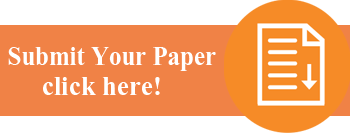Sustainability of Technology Use in Higher Education in Indonesia Post the COVID-19 Pandemic: Analysis of Scientific Evidence
Keywords:
Sustainability, Technology, Higher Education, Evidence AnalysisAbstract
We carried out this study to analyze several scientific pieces of evidence on the sustainability of the use of technology in the context of post-pandemic higher education learning. We got several kinds of literature in the form of scientific evidence from several publications released between 2010 and 2020, which we obtained electronically with keyword-based searches such as “technology uses," "sustainability Education," higher education" post-Covid-19," and technology in learning." To get answers to the questions of this study, we analyzed the data under another phenomenon approach which involved data coding techniques, data evaluation, data interpretation, and valid and reliable conclusions. Based on existing data and discussion of the results, we can conclude that the analysis of scientific evidence shows that the continued use of technology in teaching in higher education is an effort made to harmonize learning in the 21st century, which prioritizes technology adoption to accelerate learning outcomes in tertiary institutions. This result will be a helpful insight into the following studies
Downloads
References
Abdulwahed, M. (2017). Technology innovation and engineering education and entrepreneurship (TIEE) in engineering schools: A novel model for elevating national knowledge-based economy and sustainable socio-economic development. Sustainability, 9(2), 171.
Alghamdi, A. K., El-Hassan, W. S., Al-Ahdal, A. A., & Hassan, A. A. (2021). Distance education in higher education in Saudi Arabia in the post-COVID-19 era. World Journal on Educational Technology: Current Issues, 13(3), 485-501.
Alzaza, N. S., & Yaakub, A. R. (2011). Students' awareness and requirements of mobile learning services in higher education. American Journal of Economics and Business Administration, 3(1), 95-100.
Aoun, J. E. (2017). Robot-proof: Higher education in the age of artificial intelligence MIT press.
Asrun, A. M., Sihombing, L. A., & Nuraeni, Y. (2020). Dampak pengelolaan sampah medis dihubungkan dengan undang-undang no 36 tahun 2009 tentang kesehatan dan undang-undang no. 32 tahun 2009 tentang perlindungan dan pengelolaan lingkungan hidup. PAJOUL (Pakuan Justice Journal of Law), 1(1), 33-46.
Baepler, P., & Murdoch, C. J. (2010). Academic analytics and data mining in higher education. International Journal for the Scholarship of Teaching & Learning, 4(2)
Bartusevičienė, I., Pazaver, A., & Kitada, M. (2021). Building a resilient university: Ensuring academic continuity—transition from face-to-face to online in the COVID-19 pandemic. WMU Journal of Maritime Affairs, 20(2), 151-172.
Batubara, B. M. (2021). The problems of the world of education in the middle of the covid-19 pandemic. Budapest International Research and Critics Institute (BIRCI- Journal): Humanities and Social Sciences, 4(1), 450-457.
Bayerlein, L., Hora, M. T., Dean, B. A., & Perkiss, S. (2021). Developing skills in higher education for post-pandemic work. Labour & Industry: A Journal of the Social and Economic Relations of Work, 31(4), 418-429.
Bebbington, J., & Unerman, J. (2018). Achieving the united nations sustainable development goals: An enabling role for accounting research. Accounting, Auditing & Accountability Journal.
Chernikova, O., Heitzmann, N., Stadler, M., Holzberger, D., Seidel, T., & Fischer, F. (2020). Simulation-based learning in higher education: A meta-analysis. Review of Educational Research, 90(4), 499-541.
Clark, L., Doyle, P., Garaialde, D., Gilmartin, E., Schlögl, S., Edlund, J., . . . Edwards, J. (2019). The state of speech in HCI: Trends, themes, and challenges. She interacted with Computers, 31(4), 349-371.
Dharamsi, S., Espinoza, N., Cramer, C., Amin, M., Bainbridge, L., & Poole, G. (2010). Nurturing social responsibility through community service-learning: Lessons learned from a pilot project. Medical Teacher, 32(11), 905-911.
Fadhil, I., & Sabic-El-Rayess, A. (2021). Providing equity of access to higher education in Indonesia: A policy evaluation. Indonesian Journal on Learning and Advanced Education (IJOLAE), 3(1), 57–75.
Fonseca, L. M., Domingues, J. P., & Dima, A. M. (2020). Mapping the sustainable development goals relationships. Sustainability, 12(8), 3359.
Hák, T., Janoušková, S., & Moldan, B. (2016). Sustainable development goals: A need for relevant indicators. Ecological Indicators, 60, 565-573.
Harrison, M. E., Ottay, J. B., D’Arcy, L. J., Cheyne, S. M., Belcher, C., Cole, L., . . . Gallego‐ Sala, A. (2020). Tropical forest and peatland conservation in Indonesia: Challenges and directions. People and Nature, 2(1), 4–28.
Hénard, F., & Roseveare, D. (2012). Fostering quality teaching in higher education: Policies and practices. An IMHE Guide for Higher Education Institutions, 1(1), 7-11.
Istamia, P. Y. (2019). Making use of 'The Rumah belajar Portal to improve students' ability to read descriptive texts at grade VII of SMPN 31 Bengkulu Tengah. Journal of English Education and Teaching, 3(2), 127-142.
Izquierdo, J., Sandoval Caraveo, María del Carmen, De la Cruz Villegas, Verónika, & Zapata Díaz, R. (2021). University language instructors’ preparedness for TechnologyMediated instruction and burnout during the COVID-19 pandemic. Íkala, Revista De Lenguaje y Cultura, 26(3), 661-695.
Khalili, N. R., Duecker, S., Ashton, W., & Chavez, F. (2015). From cleaner production to sustainable development: The role of academia. Journal of Cleaner Production, pp. 96, 30–43.
Kirkwood, A., & Price, L. (2014). Technology-enhanced learning and teaching in higher education: What is 'enhanced and how do we know? A critical literature review. Learning, Media and Technology, 39(1), 6–36.
Kozinets, R. V., & Gambetti, R. (2020). Netnography unlimited: Understanding technoculture using qualitative social media research Routledge.
Kruk, M. E., Arsenault, C., Jordan, K., Leslie, H. H., Roder-DeWan, S., Adeyi, O., . . . Pate,
M. (2018). High-quality health systems in the sustainable development goals era: Time for a revolution. The Lancet.Global Health, 6(11), e1196-e1252. doi:S2214- 109X(18)30386-3 [pii]
López-Vargas, A., Ledezma, A., Bott, J., & Sanchis, A. (2021). IoT for global development to achieve the united nations sustainable development goals: The new scenario after the COVID-19 pandemic. Ieee Access, 9, 124711-124726.
Marshall, R. E., & Farahbakhsh, K. (2013). Systems approach integrated solid waste management in developing countries. Waste Management, 33(4), 988–1003.
Orhan, G., & Beyhan, Ö. (2020). Teachers' perceptions and teaching experiences on distance education through synchronous video conferencing during a covid-19 pandemic. Social Sciences and Education Research Review, 7(1), 8-44.
Ossiannilsson, E. S. (2022). Resilient agile education for lifelong learning post- pandemic to meet the united nations sustainability goals. Sustainability, 14(16), 10376.
Pandit, D., & Agrawal, S. (2022). Exploring challenges of online education in COVID times. FIIB Business Review, 11(3), 263–270.
Pelenkahu, D. (2022). We are scaling up digital transformation in education.
Purcell, W. M., & Lumbreras, J. (2021). Higher education and the COVID-19 pandemic: Navigating disruption using the sustainable development goals. Discover Sustainability, 2(1), 1-16.
Putri, R. S., Purwanto, A., Pramono, R., Asbari, M., Wijayanti, L. M., & Hyun, C. C. (2020). Impact of the COVID-19 pandemic on online home learning: An explorative study of primary schools in Indonesia. International Journal of Advanced Science and Technology, 29(5), 4809-4818.
Zapanta, C., Botturi, L., Goodyear, P., Guàrdia, L., & Koole, M. (2021). Balancing technology, pedagogy and the new normal: Post-pandemic challenges for higher education. Postdigital Science and Education, 3(3), 715–742.
Rapala, C., Botturi, L., Goodyear, P., Guàrdia, L., & Koole, M. (2021). Balancing technology, pedagogy and the new normal: Post-pandemic challenges for higher education. Postdigital Science and Education, 3(3), 715–742.
Rulandari, N. (2020). The impact of the covid-19 pandemic on the world of education in Indonesia. Ilomata International Journal of Social Science, 1(4), 242-250.
Sá, M. J., & Serpa, S. (2020). The COVID-19 pandemic is an opportunity to foster the sustainable development of teaching in higher education: sustainability, 12(20), 8525.
Salvioni, D. M., Franzoni, S., & Cassano, R. (2017). Sustainability in the higher education system: An opportunity to improve quality and image. Sustainability, 9(6), 914.
Shammi, M., Bodrud-Doza, M., Islam, A. R. M., & Rahman, M. (2021). Strategic assessment of COVID-19 pandemic in Bangladesh: Comparative lockdown scenario analysis, public perception, and management for sustainability. Environment, Development, and Sustainability, 23(4), 6148-6191.
Simamora, R. M., De Fretes, D., Purba, E. D., & Pasaribu, D. (2020). Practices, challenges, and prospects of online learning during the covid-19 pandemic in higher education: Lecturer perspectives. Studies in Learning and Teaching, 1(3), 185-208. Tahiri Bachari, W. (2021). Students vs. teachers' perceptions of factors causing Algerian EFL speaking test anxiety: The case of undergraduate students of English
at biskra university.
Vieira, I., Lopes, A. P., & Soares, F. (2014). The potential benefits of using videos in higher education. Paper presented at the Proceedings of EDULEARN14 Conference, 0750-0756.
Watermeyer, R., Crick, T., Knight, C., & Goodall, J. (2021). COVID-19 and digital disruption in UK universities: Afflictions and affordances of emergency online migration. Higher Education, 81(3), 623–641.
Wiek, A., Bernstein, M., Foley, R., Cohen, M., Forrest, N., Kuzdas, C., . . . Withycombe Keeler, L. (2015). Operationalizing competencies in higher education for sustainable development. Handbook of Higher Education for Sustainable Development; Barth, M., Michelsen, G., Rieckmann, M., Thomas, I., Eds, 241–260.
Williamson Sprague, E., & Dahl, D. W. (2010). Learning to click: An evaluation of the personal response system clicker technology in introductory marketing courses. Journal of Marketing Education, 32(1), 93–103.
Yarime, M., Trencher, G., Mino, T., Scholz, R. W., Olsson, L., Ness, B., . . . Rotmans, J. (2012). Establishing sustainability science in higher education institutions: Towards integration of academic development, institutionalization, and stakeholder collaborations. Sustainability Science, 7(1), 101-113.





